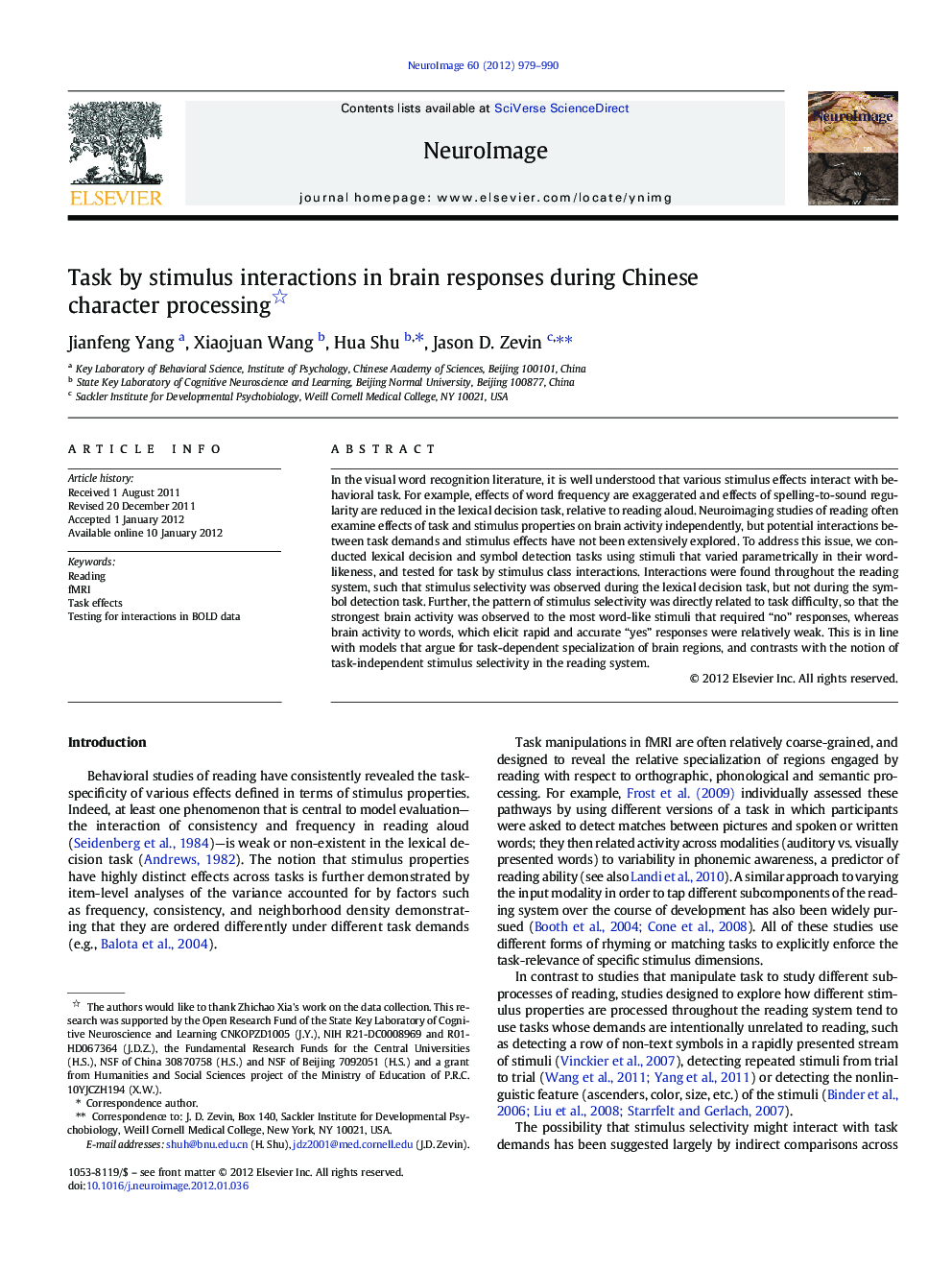| Article ID | Journal | Published Year | Pages | File Type |
|---|---|---|---|---|
| 6032049 | NeuroImage | 2012 | 12 Pages |
In the visual word recognition literature, it is well understood that various stimulus effects interact with behavioral task. For example, effects of word frequency are exaggerated and effects of spelling-to-sound regularity are reduced in the lexical decision task, relative to reading aloud. Neuroimaging studies of reading often examine effects of task and stimulus properties on brain activity independently, but potential interactions between task demands and stimulus effects have not been extensively explored. To address this issue, we conducted lexical decision and symbol detection tasks using stimuli that varied parametrically in their word-likeness, and tested for task by stimulus class interactions. Interactions were found throughout the reading system, such that stimulus selectivity was observed during the lexical decision task, but not during the symbol detection task. Further, the pattern of stimulus selectivity was directly related to task difficulty, so that the strongest brain activity was observed to the most word-like stimuli that required “no” responses, whereas brain activity to words, which elicit rapid and accurate “yes” responses were relatively weak. This is in line with models that argue for task-dependent specialization of brain regions, and contrasts with the notion of task-independent stimulus selectivity in the reading system.
⺠We used a novel analysis approach to study task by stimulus interactions in fMRI. ⺠Participants completed two tasks with stimuli designed to vary parametrically in “wordlikeness.” ⺠This stimulus dimension interacted with task throughout a broad network of regions associated with reading.
